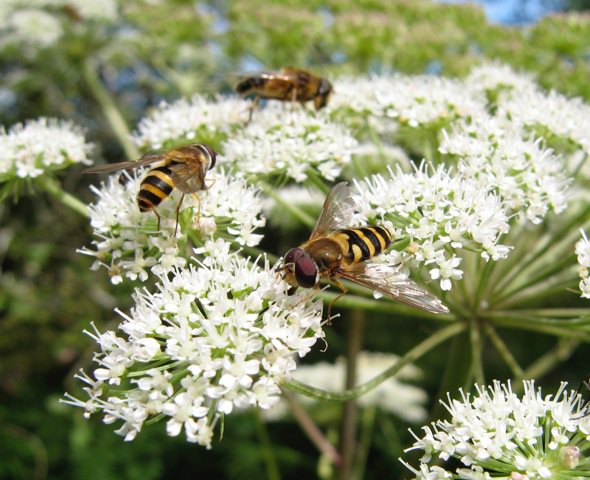If reason and persuasion don’t work, we need to start hitting the less ethical elements of the gardening industry where it hurts: below the profit margin.
Yes, you read that right: it’s time for us to start revolting. Unless you subscribe to the against-the-clock, TV makeover, artificial, fashion-fickle version of gardening, you’ll know that it’s about so much more. It’s about fresh, untainted food and flowers that only travel footsteps. It’s about getting into sync with the wild, natural world that’s an interwoven, vital part of quiet, thoughtful gardening. It’s sometimes about huff and puff and a sweaty brow; it’s also about being still and losing yourself in a wondrous moment. It’s about creating, about nurturing, about harvesting, about savouring. It’s about laughing, crying, fuming and rejoicing. It’s about life and rhythm, about decay and return; about renewal, about new beginnings. It’s about all of these, and it’s about so much more.
But glance across the ‘trade’ magazines and publications which serve the UK’s gardening industry, or look at the line-up of conferences and ‘contact’ events it has planned, and it’s clear that gardening, in our ‘must-grow-the-economy’-fixated times, is only about one thing: making shedloads of money. Not content with trading in the stuff that turns the wheels of gardening – plants – the recently-formed Garden Industry Marketing Board (the name says it all) is exercising its collective grey matter about how to flog ‘leisure products and outdoor lifestyle ideas’ to those in their 30s and 40s. Presumably there’s good money to be raked from plant-devoid plots; getting a ‘focus group’ to confirm that gardening’s too much like ‘hard work’ for younger folk erases any doubt. Gardening is all about life in its broadest, richest sense; it doesn’t need ‘styling’. Perhaps the GIMB should go the whole hog and rebrand itself as the Lifestyle Industry Marketing Partnership – LIMP.

This is just one example of how relentless, rapacious consumerism is widening the chasm between the businesses which serve gardeners and what gardening’s all about. It was only a matter of time before some dim marketing spark dreamt up the idea of gardenless gardening. Worryingly, the recent spate of sell-outs by independent garden centres to ever more bloated chain stores is further widening the chasm (recent announcements by ailing supermarkets might squeeze it a little). None of this is much comfort for anyone who’s discovered what gardening’s really about – but it might help you rumble the next slick campaign peddling you a lifestyle.
Gardening’s capture by business interests might be vexing for us, but imagine how it’s playing out for the wild living world. The greedy muscles of consumerism are adept at elbowing out concern and appeasing selfishness (think peat-based composts), focusing on fiction, not fact (think tabloidesque gardening columns), and keeping stum whenever needed (think neonicotinoid bug killers and glyphosate weedkiller). The gardening media, in thrall to business interests through advertising and sponsorship, remains similarly neutered. When did you last read an in-depth article in a mainstream gardening magazine investigating the widespread use of neonicotinoids – the polluting ‘neonic’ insecticides proven to harm bees and other insects – in producing the seeds, plants and bulbs destined for our gardens? I won’t hold my breath.
The one thing our gardening industry fears is our gardening media talking about the damage it does, in our name, to the natural world, because the last thing it wants is us thinking about it. If we do that, we might start asking questions and become more discerning. We might even stop buying or reading some things, or dare to ask or dream for others. And that’s why it’s time for us gardeners to get bolshie.
I’m not quite sure how this revolution is going to pan out, but it’ll be played out on unlikely ground, and it needs to get rolling. This uprising won’t be fought with facts and figures, or with sobering reports, however accurate, of trashed peat bogs, or of insects, earthworms and birds unwittingly poisoned by everyday garden ‘bug killers’. None of that has worked: sales of peat-based compost and pesticides increased in 2014. When I ask staff in garden centres why they’re still selling neonics, or if they’re aware of the damaging effects of glyphosate weedkiller, they look over my shoulder for the flying saucer. This peaceful but powerful rebellion needs to be played out at the checkouts, real and virtual, where we buy our gardening stuff. Militant types might consider more direct action, but what I have in mind will strike at the beating hearts of gardening businesses: their pockets.

This is going to be a bad year for peat bogs. There’s renewed zeal for airbrushing away concern for the destruction of our peatlands, with the excuse that ‘our customers have demanded’ reliable ‘professional’ composts made from peat. Using the smokescreen of ‘customers have told us’ is an old trick, but it’s one big companies such as Thompson & Morgan seem determined to cynically exploit, as they get ready to roll out a new (and pricey) compost made almost solely of peat (others are planning similar moves). They say they are doing this in your name, because you must have the best. The fact that top-quality peat-free composts have been around for several years, and that gardeners can now buy the same ones that professional growers pot in, is quietly ignored. Hope that the conscience of any gardening business might be pricked by a new report explaining how we are ‘eating away at our own life support systems’ appears slim.
But what if loyal customers rebel, and say – directly or, better still, on social media such as Twitter – that they’ll not be buying anything from a company (or TV gardening shopping channel) that wittingly destroys, pollutes or otherwise harms our natural world in the name of gardening? And how about we carry the same rebellious streak to our local garden centre or DIY store? Explaining to the top brass that you’ll not be shopping there again until they start stocking some quality peat-free composts will soon grab attention (they’ll quickly stop searching for flying saucers). You might even hear the tills trembling as you make your empty-handed way out.
And why stop there? The widespread use of neonics by horticultural growers who supply our shops and garden centres with seeds, plants and bulbs raises barely a murmur of attention (gardeners in the USA are much more stroppy). The worst-offending products have been banned, but other products from the same suppliers are still on sale. What if we insist on knowing exactly what pesticides and fungicides plants on sale have been treated with, so we don’t take home a polluted, bee-poisoning plant, no matter how well-grown and irresistible? When we buy organically-grown plants, we have the assurance of knowing what’s not in them; it’s high time we were told what is in the others – and ask for it to be kept out. The ‘listening ears’ will soon perk up; empty, silent shopping trolleys are powerful drivers of change.
These are just two areas where change will only come from the bottom up – and that means us. Most businesses have failed to even switch on their ethical radar, and our gardening media dares not see, hear or speak anything that might rock the boat.
The question is, how revolutionary are you prepared to be?
Text and images © John Walker
Find John on Twitter @earthFgardener


